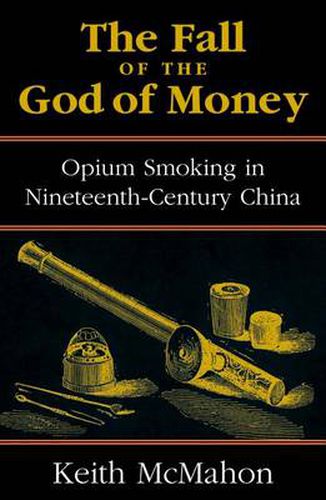Readings Newsletter
Become a Readings Member to make your shopping experience even easier.
Sign in or sign up for free!
You’re not far away from qualifying for FREE standard shipping within Australia
You’ve qualified for FREE standard shipping within Australia
The cart is loading…






A cross-cultural study of opium. Keith McMahon considers the perspectives of both smokers and non-smokers from China and the Euro-West and from both sides of the issue of opium prohibition. He stages a dramatic confrontation between the Chinese opium user and the Euro-Westerner who saw in opium the image of an uncanny Asiatic menace. Opium was inextricably bound up with generalizations made about teeming Asiatic masses, nightmarish opium sots, effeminate Chinamen, and orientalized white women. In China, opium - called the Western Drug - was tied to the arrival of Christianity and Western greed. The rise of the opium demon meant the fall of the god of money, that is, Chinese money, and the irreversible trend in which Confucianism gave way to Christianity. McMahon makes the case for opium smoking as a way of life that, far from being merely wanton, was an entirely reasonable choice in times when smokers could be neither Christian nor Confucian. Opium smoking was a way of inhabiting an era in which traditional loyalties were in critical transition. The author demonstrates the current laws against drugs of addiction have their origins in this early modern conflict of cultures and not in any supposed scientific evidence that opium is so definitely worse than alcohol. The work explores early Western observations of opium smoking, the formation of arguments for and against the legalization of opium, the portrayals of opium smoking in Chinese poetry and prose, and scenes of opium-smoking interactions among male and female smokers and smokers of all social levels in 19th-century China. Also, by providing a translation of an 1878 autobiography of a Chinese addict, McMahon is able to explore the opium smoker’s own observations on China and opium smoking.
$9.00 standard shipping within Australia
FREE standard shipping within Australia for orders over $100.00
Express & International shipping calculated at checkout
A cross-cultural study of opium. Keith McMahon considers the perspectives of both smokers and non-smokers from China and the Euro-West and from both sides of the issue of opium prohibition. He stages a dramatic confrontation between the Chinese opium user and the Euro-Westerner who saw in opium the image of an uncanny Asiatic menace. Opium was inextricably bound up with generalizations made about teeming Asiatic masses, nightmarish opium sots, effeminate Chinamen, and orientalized white women. In China, opium - called the Western Drug - was tied to the arrival of Christianity and Western greed. The rise of the opium demon meant the fall of the god of money, that is, Chinese money, and the irreversible trend in which Confucianism gave way to Christianity. McMahon makes the case for opium smoking as a way of life that, far from being merely wanton, was an entirely reasonable choice in times when smokers could be neither Christian nor Confucian. Opium smoking was a way of inhabiting an era in which traditional loyalties were in critical transition. The author demonstrates the current laws against drugs of addiction have their origins in this early modern conflict of cultures and not in any supposed scientific evidence that opium is so definitely worse than alcohol. The work explores early Western observations of opium smoking, the formation of arguments for and against the legalization of opium, the portrayals of opium smoking in Chinese poetry and prose, and scenes of opium-smoking interactions among male and female smokers and smokers of all social levels in 19th-century China. Also, by providing a translation of an 1878 autobiography of a Chinese addict, McMahon is able to explore the opium smoker’s own observations on China and opium smoking.